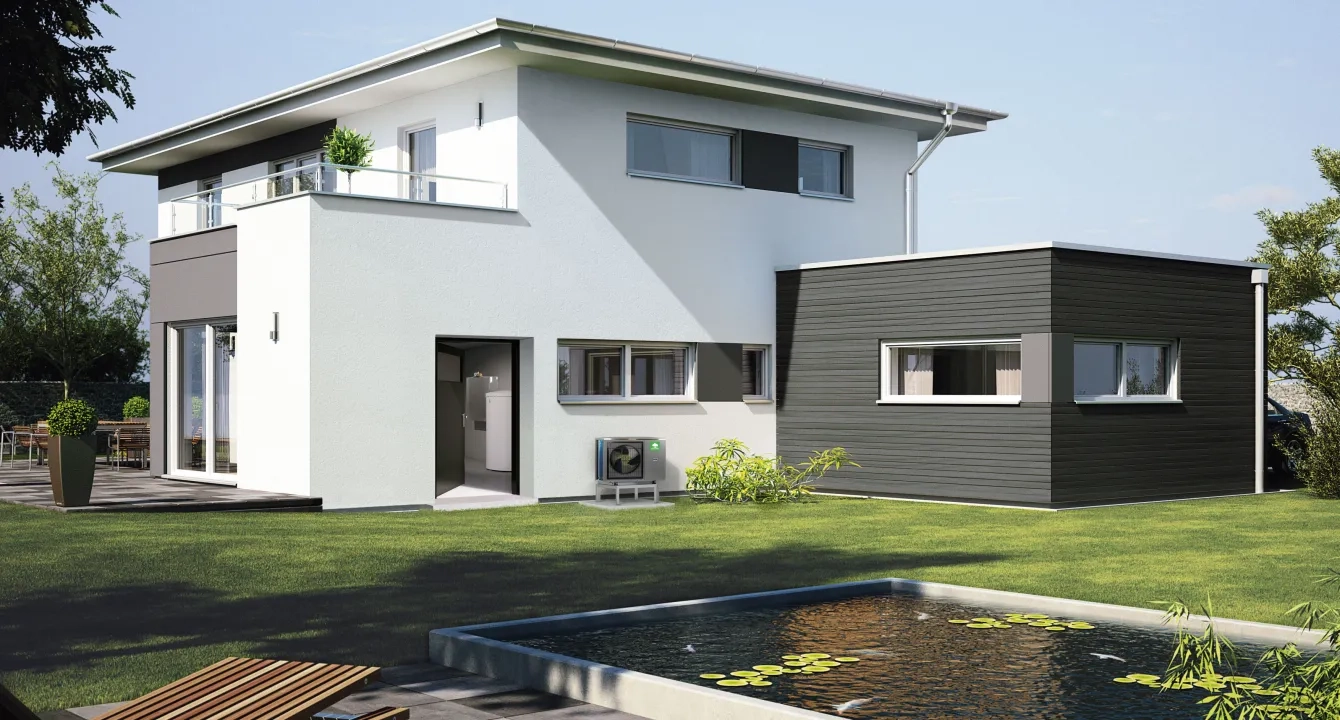
There is a widespread opinion that heat pump is an excellent and rational solution for heating, but why?
We will tell you the advantages and drawbacks of this technology and help you decide whether you should buy this type of equipment. When choosing heating equipment, everyone goes through a huge amount of material in the Internet.
It is important to understand what we are talking about.
First of all, heat pumps are different and some types are more suitable for one or another heat source.
In general, there are 3 types of heat pumps:
- Geothermal - extracts heat from the earth's crust.
- Water source - receives heat from underground water or reservoirs.
- Air source - extracts thermal energy from the air (even in winter).
1st and 2nd types are water-to-water (WTW) type. 3rd type is air-to-water (ATW) type.
Choosing a certain type of heat pump should be based on the location of your facility and the features of the equipment. Let's make a small review of heat pump types.
Geothermal heat pump uses an evaporator in the form of a special tube system.
There are 2 types of its location:
a.) horizontal at a depth of 1 to 3 meters (requires a large plot of land, but is relatively inexpensive);
b.) vertical to a depth of 50-150 meters (this type is suitable for a house on a small plot, but is more expensive than the previous one).
Water source heat pump uses groundwater (source and receiver boreholes are required) or a nearby river/lake/pond as an energy source.
Air source heat pump are the best choice in most cases. This type does not require any drilling or digging. And it is very easy to install.
Advantages of heat pumps
Efficiency
The heat pump is characterized by a much higher efficiency on the market compared to all other popular technologies. For comparison: a electric boiler with power consumption of 1 kW of electricity will be able to produce about 0.9 kW of heat, while a heat pump can give up to 4-5 kW of heat with the same power consumption. The secret of this excellent result is that the equipment does not produce heat, but transfers it using phase transitions of refrigerant .
Benefit
You can ask the question: "What is the benefit for such a price of a device?". Of course, the heat pump is not cheap, but it pays for itself with amazing speed. Gas is constantly getting more expensive and in the long run you can lose a lot by using it as the main source of heating. A heat pump has much lower operating costs and pays for itself in a few years.
Safety
Heating equipment must be safe and a heat pump is just such equipment. It does not use any fuel during operation and does not emit harmful components.
Environmental friendliness
The issue of environmental friendliness is becoming more and more relevant every year. The heat pump does not emit any harmful emissions, so you do not pollute the environment.
Versatility
A significant advantage of the heat pump is its versatility. By buying it, you simultaneously solve the issue of heating, air conditioning and DHW. So, what is the difference between a heat pump and an air conditioner? Their working principles are the same, but the air conditioner in heating mode has worse efficiency and a shorter service life. However, the heat pump is specially designed for heating.mode.
How to make the air conditioning of a house or apartment high-quality and economical?
Someone will advise you to buy a fan - it is useless, because it is ineffective. Someone will advise you to install an air conditioner - it is comfortable, but expensive (both installation and maintenance).
The most effective solution is to install a heat pump with underfloor heating and/or medium temperature radiators and fan coil units. This system configuration provides a comprehensive solution and performs three functions by one heat pump: comfortable heating, air conditioning and DHW.
Heat pump with fan coils is an ideal option for a house in the summer season!
Only a heat pump provides the most profitable home heating and DHW. At the same time, costs are reduced several times compared to any other heating methods. But another important advantage of geothermal or air source heat pump is the ability to cool the house in the summer in the most economical way.
The unique capabilities of heat pumps to use environmental energy (air, water or even soil) provide the most economical and environmentally friendly heating/air conditioning of residential or other facilities. Fan coil units are an alternative to conventional radiators. In addition to heating, they successfully perform the functions of air conditioning in the necessary rooms: in the living room, office, bedroom or playroom.
In summer, the heat pump works in chiller mode. It changes the functions of heat exchangers and produces not warm, but cold water for the fan coil system. In this way, excess heat from the house is removed outside.
In the heat exchangers of fan coils, the heat of the room air is transferred to the cold coolant (water or glycol solution), which is produced by the heat pump.
There are two ways of operation of heat pumps for cooling:
- passive cooling (freecooling) – the circulation pump transfers excess heat from the heat exchangers of the fan coils of the serviced premises to the pipe collector in the ground or reservoir, compressor does not operate;
- active cooling (DX cooling) – cold coolant entering the fan coil circuit is produced using the compressor.Only geothermal or water source heat pumps can operate in passive cooling mode. But all types of heat pumps can operate in active cooling mode.
Conclusions
Each heat pump type has its advantages and drawbacks, but choice is always yours. MYCOND heat pumps are the best value for money!